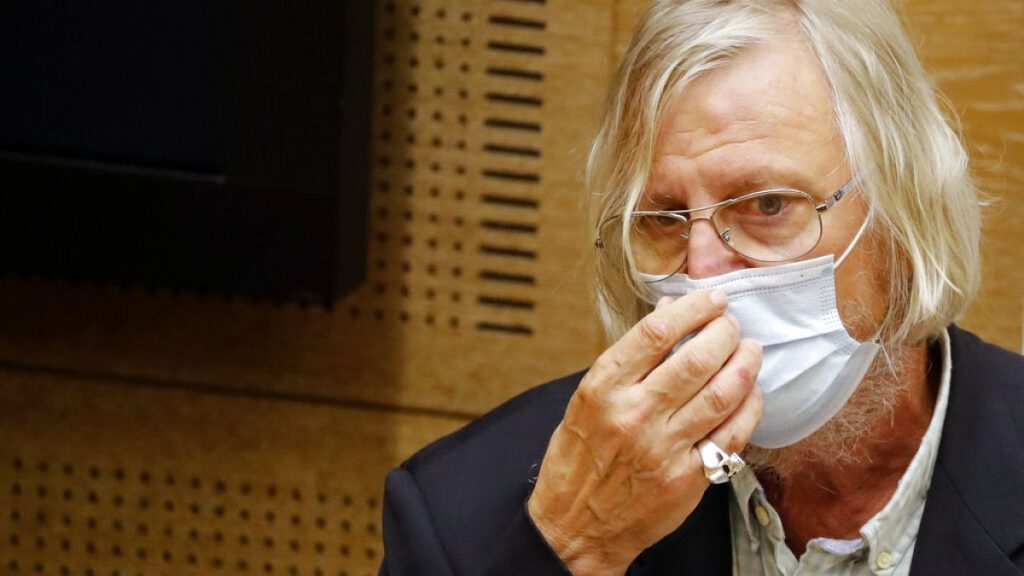The retraction of a 2020 study on hydroxychloroquine as a COVID-19 treatment from the International Journal of Antimicrobial Agents marks a significant development in the ongoing scientific and ethical debate surrounding the drug’s efficacy and the conduct of research during the pandemic. The retraction, based on concerns about ethical violations, methodological flaws, and questionable conclusions, underscores the importance of rigorous scientific processes and the potential consequences of promoting unsubstantiated claims. The study, notably championed by controversial French doctor Didier Raoult, has been effectively removed from the scientific record, deemed unreliable and unsuitable for future research. This decision follows a thorough investigation conducted with an independent consultant, highlighting the journal’s commitment to upholding scientific integrity.
The retraction notice details several critical issues that led to this decision. Firstly, the journal expressed doubts about whether all patients included in the study had enrolled in a timely manner, potentially compromising the data’s validity. This raises concerns about the study’s design and execution, suggesting a potential rush to publish findings without adhering to proper research protocols. Secondly, the issue of informed consent regarding the use of azithromycin, an antibiotic intended to be used in conjunction with hydroxychloroquine, came into question. The inability to confirm whether patients were fully informed about the treatment protocol represents a serious ethical breach, emphasizing the importance of patient autonomy and the right to make informed decisions about their medical care. Furthermore, the dissent within the research team itself, with three authors withdrawing their names from the publication, further underscores the internal disagreements about the study’s integrity.
The controversy surrounding hydroxychloroquine and its proponent, Didier Raoult, adds another layer of complexity to this retraction. Raoult, a microbiologist who gained notoriety for his fervent advocacy of hydroxychloroquine as a COVID-19 treatment, faced professional repercussions for his actions. His suspension from practicing medicine and the ongoing legal battle against this decision highlight the professional and ethical ramifications of promoting unproven medical treatments. Moreover, the investigation by the Marseille public prosecutor’s office into the quality of research and care at Raoult’s former institute raises broader concerns about the integrity of his research practices. This incident underscores the potential for personal biases and agendas to influence scientific research, emphasizing the need for objective and unbiased investigations.
The retraction of the hydroxychloroquine study serves as a cautionary tale about the dangers of disseminating unsubstantiated scientific claims, especially during a public health crisis. The rapid spread of misinformation about COVID-19 treatments highlighted the vulnerability of the public to misleading information and the importance of relying on credible scientific sources. Raoult’s promotion of hydroxychloroquine, despite a lack of robust scientific evidence, exemplifies this phenomenon. The subsequent retraction reinforces the importance of scientific rigor, peer review, and ethical conduct in research. It also demonstrates the scientific community’s commitment to self-correction and its willingness to address flawed research, even when it involves prominent figures.
The broader implications of this retraction extend beyond the specific case of hydroxychloroquine. It highlights the crucial role of scientific journals in upholding research standards and ensuring the integrity of published findings. The decision to retract the study, after a thorough investigation, demonstrates the journal’s commitment to accountability and its willingness to correct the scientific record. This incident also underscores the dynamic nature of scientific knowledge and the importance of continuous scrutiny and evaluation of research findings. The initial emergency use authorization of hydroxychloroquine by the FDA, followed by its revocation due to lack of efficacy and safety concerns, further emphasizes the evolving understanding of medical treatments and the need for evidence-based decision-making.
In conclusion, the retraction of the hydroxychloroquine study represents a significant moment in the ongoing discussion about scientific integrity, research ethics, and the dissemination of medical information. The multiple layers of this story, from the methodological flaws and ethical breaches within the study itself to the controversial figure of Didier Raoult and the broader context of the COVID-19 pandemic, offer valuable lessons about the complexities of scientific research and the importance of responsible communication. This incident serves as a reminder that scientific progress relies on rigorous methodologies, ethical practices, and a commitment to self-correction, ultimately ensuring the reliability and trustworthiness of scientific knowledge.














